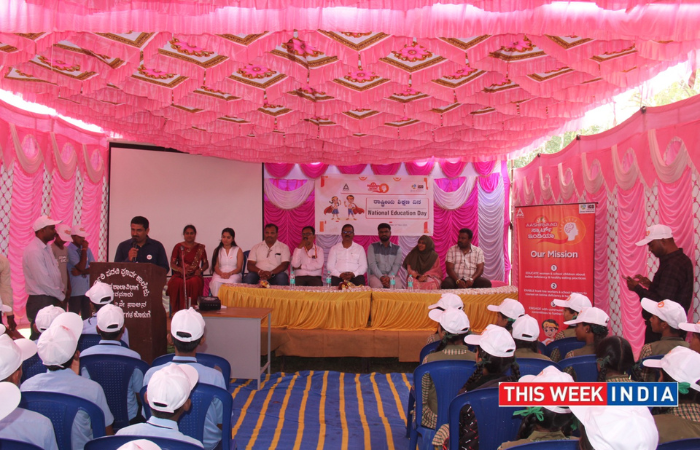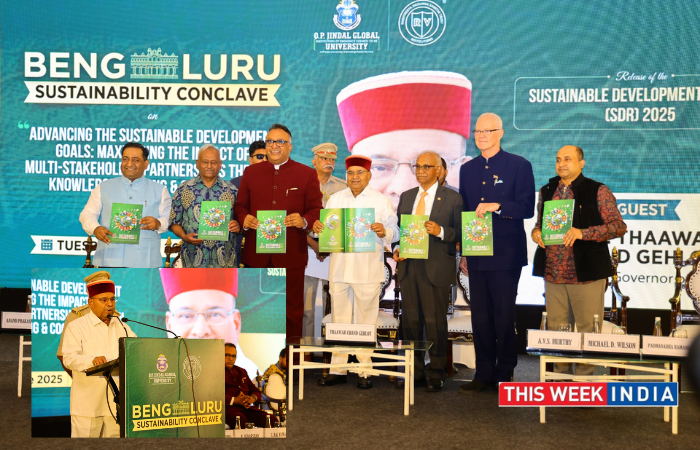The Modi Meltdown has stumped everyone and the media is having a field day trying to make sense of why he did the unthinkable: Repealing the three contentious farm laws.
At the outset, you have to admit that even when is sort of surrendering to the mob, he does it in inimitable style.
By apologising to the nation, openly, when there was no real reason to do so, he showed a large — 56 inch — heart. All the talk about Hitler, fascism, arrogance, now will look hollow. Enter a new lexicon: non-confrontational, liberal, consensual. Move over, Nehruvian, here comes Modivian — a new benchmark for the open-minded democrat!
Why he repealed the farm laws will be debated endlessly and therefore its open sesame for all kinds of speculation. Consider the pros and cons.
Elections to 5 states mainly UP and Punjab: Before the meltdown moment, surveys showed the BJP winning around 230–250 seats. With momentum on its side and 3 months still left for the polls, the BJP has time on its hands to win comfortably, AND win big. So the electoral motif wears thin, like lazy analysis. Unless, Modi brooks no uncertainty whatsoever about 2024.
The Border-state Punjab conundrum: Fears of at best a reckless or at worst, an “anti-national” government coming to power if AAP’s Kejriwal or Congress’ Sidhu becomes the CM is certainly a hot potato one cannot blindly dismiss, since Punjab’s border is half an hour’s drive away from Pakistan.
The whole world knows Sidhu is pally with Imran Khan and Pakistan’s ISI, and Kejriwal with his own gang of Khalistan pals, comes across as a slippery and cunning fox for a large section of people, and not limited to the BJP supporters alone.
So by repealing the farm laws, Modi ensures Captain Amrinder Singh can go to town taking credit for it, give teeth to his alliance with the BJP, and hope for a fighting chance to win a majority. And if Captain falls short of the magic number, there’s always Amit Shah’s Plan B: A post-poll tie-up with the Akali Dal, thus taking out both Sidhu and Kejriwal out of the picture, even if they can come close to the half way mark.
True, Amrinder cannot stand the Badals, but when Uddhav Thackeray can run with the BJP and run away with the Congress in Maharashtra, everything is on the table.
The Khalistan angle: A week ago, India’s James Bond, NSA to the government, Ajit Doval warned that the new age war is fought and won by breaking civil society and weakening the country from within. That’s exactly what has been playing out all along at the Singhu border, with Bhindranwale posters, Khalistani flags, Pak sympathisers, and ultras apparently funded by overseas groups inimical to India. Meanwhile the Dragon awaits at the border, ready to pounce on the Elephant anytime. All of this making for a toxic concoction, tempting Imran Khan to add a Khalistani flavour to it and drug up the border.
You can’t be blind to all this unravelling. What if the Khalistani supporters infiltrate into Punjab, tap into the mind of the vulnerable Sikh, and reinvent Khalistan 2.0? Already, there’s no dearth of Sikh hotheads rambling about Longowal Accord and blah-blah-blah hinting on a perceived hurt because of Delhi.
So kiss the farm laws goodbye, appease the Sikhs, and lose the battle to win the war. Sense & Sensitivity, from the Secret Archives of Amit Shah.
Fears over Opposition unity: The BJP fears losing the battle for 2024 to the index of opposition unity. If the opposition parties string together before the polls AND after the polls too for a compromise PM candidate, it could be curtains for Modi. But for that, the opposition needs an issue they can escalate to Himalayan proportions and which will also resonate among the people, and not just their hatred for Modi. What better than the farm laws, followed by CAA (to woo the Muslims)?
So by taking the farm laws out of the equation, the opposition will be devoid of any stick to beat Modi with, and the road to 2024 will be free of any humps or roadblocks.
There are also a lot of theories about the consequences of such a rollback, viz.
Moboraj: Move over Modi Raj, the mojo is now with the Mob. Street politics will now be the new Parliament to lord over any law that’s anathema to any identify group.
The problem with this theory is, Modi may have taken a step back, but what if he is aiming for a faster sprint?
Slowdown in Reforms: There is merit in the argument. The Land Acquisition Act in Modi’s first era was a rare climb-down. But if the pandemic led to a blitzkrieg of reforms, a draw-down too may only be a red herring for what is to follow.
Entrenched Identity politics: Democracy is all about parading and peddling your identify so that you can punch above your weight. Small, big, powerful, marginalized, whatever. Can’t afford to keep farmers unhappy. Ditto the Minorities. Powerful caste groups. Established sub-castes. Marginalized but useful backward groups. The middle class. The poor. The business community. So one compromise leads to another, and appeasement will reinvent the old school politics as the new normal. Whither India as a nation?
This seems the most plausible because we have been there, done that. This is a status quo that is destined to die with us.
All parties play this poker and Modi’s BJP too has skin in the game. The only thing to watch out for is, will the farm laws’ repeal open a Pandora’s box and end up as a continuous please-all game, leaving everyone divided and each one united?
Shock & Awe: Is the pushback shock, a prelude to an equally shocking surprise? With Modi, there’s always room for the X Factor: The Meltdown may eventually end up with a hit in the solar plexus for the opposition in the upcoming winter session of Parliament. Like bringing up a bill for Uniform Civil Code or something else equally if not more dramatic, like a universal basic income for India’s poor? Straight from the Archives of Amit Shah, you could say.
Lame-duck Modi: Talk of Modi Raj becoming a lame-duck government is jumping the gun and being grossly unfair to his political smarts. Whatever may be his failings, Modi believes in battling it out for another day, and not committing political hara-kiri. Especially when he still has a formidable amount of political currency and capital, against a virtually pauperised opposition.
Summing up, will the roll-back fadeout or add to Modi’s aura? Right now, Modi seems like an under-valued stock, but his book value is still high and much more voters are bullish about him than they are of his opponents, most of whom are only quoted in localised political exchanges.
The jury is out on whether this roll-back is a major correction or a crash in Modi stock. Just like it happens in Dalal Street, will Modi bounce back even more stronger, after this correction or a crash?
By- K.S. Muralidharan









